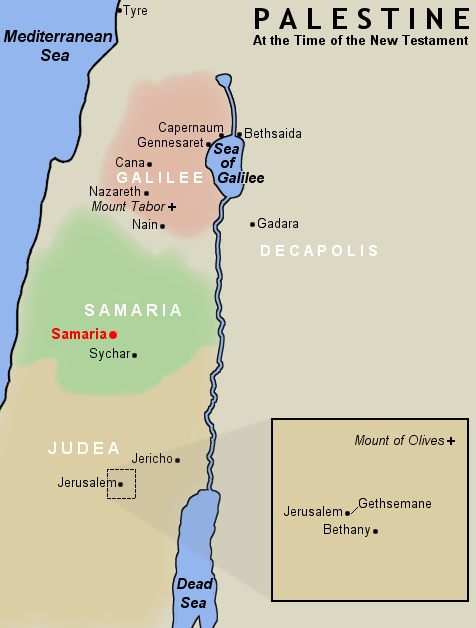 After Jesus gave Saul a knee-buckling, jaw-dropping, eye-blinding conversion, I’d expect his preaching start would be another Pentecost (Acts 2:41). Not exactly. In fact, Saul’s start was downright shaky . . .
After Jesus gave Saul a knee-buckling, jaw-dropping, eye-blinding conversion, I’d expect his preaching start would be another Pentecost (Acts 2:41). Not exactly. In fact, Saul’s start was downright shaky . . .
Saul Preaches in Damascus (9:19b-22).
Saul spent several days with the disciples in Damascus. At once he began to preach in the synagogues that Jesus is the Son of God. All those who heard him were astonished and asked, “Isn’t he the man who raised havoc in Jerusalem among those who call on this name? And hasn’t he come here to take them as prisoners to the chief priests?” Yet Saul grew more and more powerful and baffled the Jews living in Damascus by proving that Jesus is the Christ.
After his dramatic conversion (9:1-19a), Saul stayed with the Jesus’ followers in Damascus . Immediately he preached in the Jewish synagogues: “[Jesus] is the Son of God!” The Jews (who’d heard of Saul’s mission to arrest Christian Jews) were astounded. But as far as we know from the text, none believed his message. Instead, the more powerful Saul became in proving Jesus the Messiah, the more befuddled the Jews became.
Their unbelief baffles me. Saul, trained by Rabbi Gamaliel, knew the Old Testament like the back of his hand. Furthermore (not noted by author Luke), sometime during this period, Saul went to Arabia for three years, presumably to re-study the Jewish Scriptures knowing now the prophesied Messiah was Jesus (Galatians 1:17). Finally, I’d expect his “conversion power” to kind of “rub off” on his preaching. Not in Damascus. In fact, the Jews not only disbelieved, they plotted murder . . .
Saul Escapes Damascus in a Basket (9:23-25).
After many days had gone by, the Jews conspired to kill him, but Saul learned of their plan. Day and night they kept close watch on the city gates in order to kill him. But his followers took him by night and lowered him in a basket through an opening in the wall.
Thankfully those who did follow him heard of the plan. So one night, after the city walls were closed, they went to a house built into the city wall (or found an opening in the wall), stuffed him inside a basket (probably made of ropes like an old-fashioned hammock) and lowered him to the ground. Not exactly a triumphant exit! I wonder if on the way down Saul remembered God’s word through Ananias: ” . . . I will show him how much he must suffer for the sake of my name” (9:16)? On the other hand, he may just have been licking his rejection wounds. All he could do now, as he scrambled out of his basket, was to head for Jerusalem.
Saul Suffers in Jerusalem (9:26-30).
When he came to Jerusalem, he tried to join the disciples, but they were all afraid of him, not believing that he really was a disciple. But Barnabas took him and brought him to the apostles. He told them how Saul on his journey had seen the Lord and that the Lord had spoken to him, and how in Damascus he had preached fearlessly in the name of Jesus. So Saul stayed with them and moved about freely in Jerusalem, speaking boldly in the name of the Lord. He talked and debated with the Grecian Jews, but they tried to kill him. When the brothers learned of this, they took him down to Caesarea and sent him off to Tarsus.
Since these were pre-social media days, the last the disciples knew of Saul was his leaving Jerusalem years earlier breathing fire toward the Christian Jews in Damascus. Being Christian Jews themselves, they weren’t ready to offer Saul a room for the night. But Barnabas (“the son of encouragement”) confirmed Saul’s story, though we’re not told how he knew it. As far as Barnabas was concerned Saul was the real thing, especially after courageously preaching to blood-thirsty Jews.
So Saul openly preached and talked and debated the Grecian Jews (Jews born outside Israel). But the response in Jerusalem was no better than that in Damascus. ” . . . they tried to kill him.” Again he had to be spirited out of town. “The brothers” secretly took him north to Caesarea, bought him a boat ticket for his Tarsus hometown and sent him off. At least a boat was better than a basket! However, author Luke’s summary statement that follows isn’t exactly complimentary . . .
Saul Sent Off, So Peace (9:31).
Then the church throughout Judea, Galilee and Samaria enjoyed a time of peace. It was strengthened; and encouraged by the Holy Spirit, it grew in numbers, living in the fear of the Lord.
To be fair “Then” (Greek oon) may simply be used chronologically. Or it may refer to the result of a particular action. (The Greek word can be used either way.) If the latter, it means the church enjoyed peace now that chaos-provoking Saul was gone. The Holy Spirit encouraged and strengthened the believing community. And as the church lived in reverential fear of the Lord, numbers swelled. Now that Saul had gone . . .
So Why the Shaky Start?
Obviously Saul (eventually known by his Roman name Paul) became the greatest apostle the church has ever known. But why this shaky start? I think from the get-go the Lord was teaching Saul to humbly rely on him. I have no chapter-and-verse proof. I just have my speculation about Saul’s personality. Definitely type A. Definitely self-confident, if not a little cocky. Before conversion, he was going to personally “cleanse” the Damascus synagogues of apostate Jews. He’d drag them 135 miles back to Jerusalem if necessary.
I’m guessing (it’s just speculation) that post-conversion Saul still carried some of that cockiness. So from the gate maybe the Lord determined to cut Saul down a bit—because he, not Saul, was to be glorified. Only by suffering weakness, would Saul learn the Lord’s power (2 Corinthians 12:10).
It’s a lesson we all have to learn. And I’m thinking it’s life-long, at least for me. Oh, I’ve learned to humbly rely on the Lord. But not enough to graduate. How about you?









Recent Comments